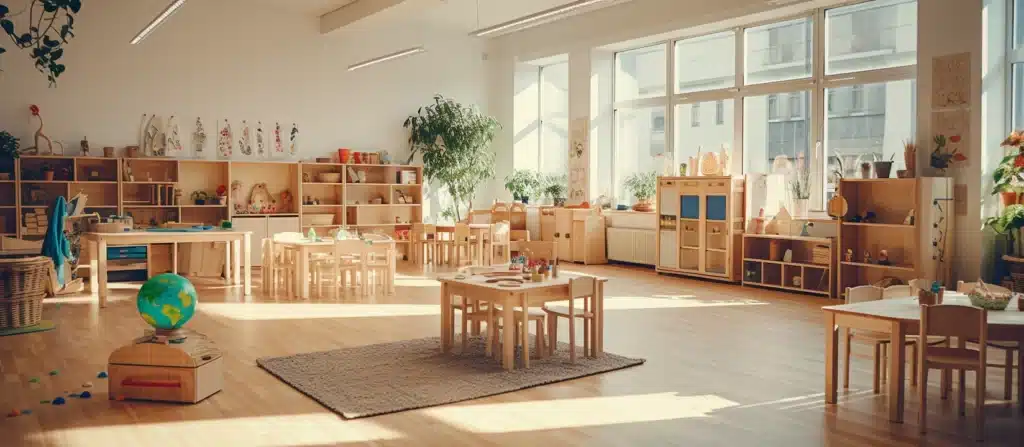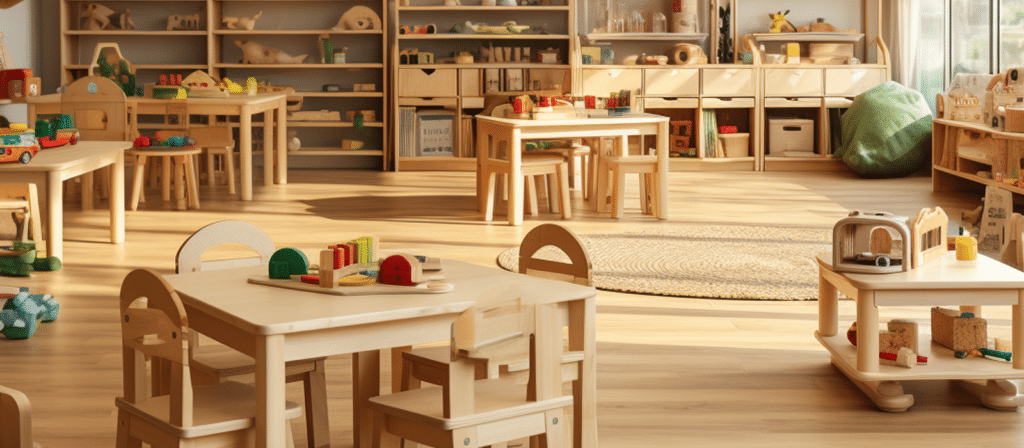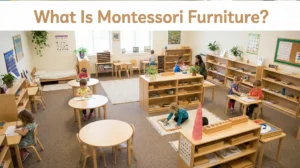Ever wondered how daycare furniture can transform the play experience for children? Are you curious about enhancing cooperative play and games in your daycare setting? Let’s explore the possibilities together, unlocking the potential of daycare furniture for fostering collaboration and fun.
Discover how thoughtfully chosen daycare furniture isn’t just functional; it’s a tool for building social skills and encouraging teamwork. As we delve into this article, you’ll find innovative ways to arrange, utilize, and repurpose daycare furniture to maximize its impact on cooperative play and games.
How can daycare furniture facilitate cooperative play?
One crucial aspect is the design and arrangement of the furniture. Providing child-sized tables and chairs allows children to comfortably sit and collaborate with their peers. When children have a designated space for group activities, it promotes a sense of belonging and encourages them to engage in cooperative play.
Another important factor is the versatility of the furniture. By using modular furniture pieces, such as adjustable tables and flexible seating options, children can easily adapt the space to their specific play needs. This flexibility enables them to create different play scenarios and encourages cooperation as they work together to transform the environment.

Daycare furniture can also include storage solutions that promote organization and responsibility. By providing shelves, bins, and cubbies, children learn to keep their play area tidy and can easily access materials for group activities. This fosters a sense of ownership and teaches children the importance of taking care of shared spaces.
Furthermore, incorporating furniture with interactive features adds an element of excitement to cooperative play. For example, tables with built-in puzzles or games provide children with opportunities to collaborate and solve challenges together. These interactive features not only make the play experience more engaging but also enhance cognitive development and problem-solving skills.
What are the benefits of using daycare furniture for cooperative play?
There are numerous benefits to using daycare furniture for cooperative play. Firstly, it promotes teamwork and collaboration. When children work together towards a common goal, they learn to communicate, listen to others’ ideas, and compromise. These skills are essential for success in school and later in life.
Secondly, cooperative play helps develop problem-solving and critical thinking skills. When children engage in activities that require them to think creatively and find solutions, they become better equipped to tackle real-life challenges. By providing daycare furniture that encourages cooperative play, we are giving children the opportunity to develop these important skills in a fun and engaging way.
Thirdly, cooperative play fosters empathy and emotional intelligence. When children collaborate and work together, they learn to understand and respect each other’s feelings, needs, and perspectives. This type of play promotes empathy, kindness, and a sense of community. By incorporating daycare furniture that facilitates cooperative play, we are creating an environment that nurtures these important social and emotional skills.
In addition to these benefits, using daycare furniture for cooperative play also enhances children’s physical development. Furniture such as climbing structures, balance beams, and tunnels not only provide opportunities for gross motor skill development but also encourage children to work together to navigate obstacles and solve physical challenges.
What are some other ways daycare furniture can enhance cooperative play?
One effective approach is to incorporate furniture that encourages group discussions and collaborative decision-making. For example, circular tables promote face-to-face interaction and equal participation, allowing children to work together on projects, brainstorm ideas, and make joint decisions. This fosters a sense of community and encourages children to value different perspectives.
Additionally, using furniture with soft seating options, such as bean bags or floor cushions, creates a comfortable and relaxed atmosphere for group activities. Children can gather around in a circle, share stories, and engage in cooperative games. Soft seating also promotes empathy and enhances communication skills as children learn to listen and respond to their peers’ ideas and emotions.
Incorporating open-ended materials and loose parts into play areas is another effective strategy. These materials, such as blocks, building sets, and art supplies, allow children to explore and create together. By providing ample opportunities for imaginative play and construction, daycare furniture can inspire collaboration and cooperation among children.

Conclusion
In conclusion, daycare furniture plays a vital role in facilitating cooperative play and games. By providing children with the tools and space they need to engage in collaborative activities, we are promoting teamwork, communication, problem-solving, and social skills. The benefits of using daycare furniture for cooperative play are vast and extend to various aspects of children’s development, including cognitive, social, emotional, and physical.













